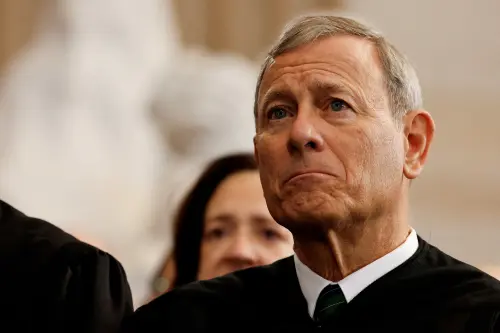Chief Justice of the United States, John Roberts, publicly criticized President Donald Trump on Tuesday for suggesting the impeachment of a federal judge, underscoring the escalating tensions between the executive branch and the judiciary due to Trump's challenges to legal restraints.
Roberts emphasized in a rare statement that "impeachment is not an appropriate response to a disagreement with a judicial decision," asserting that the proper course of action is to file an appeal.
The Chief Justice's rebuke followed Trump’s social media call for the impeachment of Washington-based U.S. District Judge James Boasberg, who had ordered the administration to cease a policy Trump claimed was authorized by an 18th-century wartime law.
With friction mounting in the eight weeks since Trump’s return to the White House, the administration's confrontational stance towards courts hindering its initiatives has raised concerns about potential constitutional crises.
An incident occurred in court where Judge Boasberg commanded a suspension of deportations under the Alien Enemies Act, including redirecting planes in transit. Despite the court order, two planes transporting alleged gang members were not turned back, leading to accusations of the administration’s defiance.
Trump's response on social media to the situation highlighted his frustration: "This judge...should be IMPEACHED!!!" Meanwhile, U.S. Marshals have ramped up security measures for judges facing increased threats.
In a broader context, legal experts have expressed skepticism about the feasibility of impeaching judges as advocated by Trump, emphasizing that individual rulings, even on nationally significant matters, are not sufficient grounds for impeachment.
Roberts’ principled stance aligns with his past defense of an independent judiciary, emphasizing that judges are dedicated to impartially upholding justice. This echoes Roberts’ 2018 statement rebuking the notion of political affiliation dictating judicial decisions.
Despite Trump’s attempts to challenge legal boundaries, the judiciary, bolstered by a robust tradition of impartiality, remains resolute in safeguarding its independence and upholding the rule of law.
